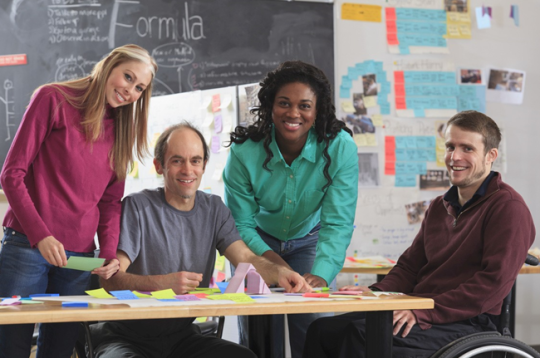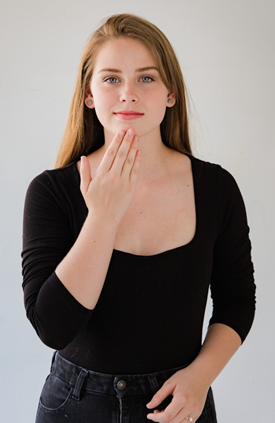The Accessible Technology Initiative at Sonoma State
Here is what you can do to ensure that Sonoma State meets the needs of all students by ensuring that all instructional materials are available in accessible formats. This includes Canvas pages, syllabi, textbooks, articles, videos, graphics and documents.
Timely Book Orders
Be sure to order textbooks from the bookstore by the posted deadline each semester. Ordering books in a timely fashion enables DSS to transform textbooks into alternative formats for students who have requested this support. Over 2000 pages per semester get transformed, which poses an extreme challenge when the orders come in at the last minute. For more information, contact Steve at [email protected]
Accessible Syllabus
The Sonoma State Syllabus Policy requires all faculty to post an accessible syllabus on the Learning Management System: Canvas. You can build this syllabus directly in Canvas or copy and paste the contents of a word version. CTET and the Universal Access Hub are happy to assist with the use of the Accessible Syllabus Template found online through the CTET, UAH or ATI pages. After building your syllabus, you can run it through the online Ally checker for any accessibility requirements.

Formatting Documents
Documents (Word, Google, Pages) can be made accessible with the use of proper formatting. Headings and Tables used appropriately will allow any document to be read by a screenreader. Running a document through the ALLY accessibility checker within Canvas will provide feedback on headings and tables. Check for the ALLY logo on your Canvas pages to run the check.
PDFs
Minimize the use of PDFs. Seek out alternative formats of articles from the library. Use Adobe to export PDFs into Word Docs. Use Microsoft Word, Google Docs, or Apple Pages when possible. Visit the Universal Access Hub on campus for assistance with remediating existing materials. If necessary, take the workshop through CTET on how to make PDFs more accessible.
Alternative Text for Images
When using an image in a powerpoint or slide presentation; or on a Canvas page, be sure to provide Alternative Text for that image. A screenreader device needs the description of any posted image as well as the context, to best explain the intended purpose of the image to the reader.
Attend CTET Workshops
CTET hosts a variety of workshops each semester, and in the summer to teach you how to make your instructional materials more accessible for students. You can learn how to caption videos, format text and tables, build your syllabus and more. Check the CTET webpage for workshops, dates and registration information.
Become an ATI Ambassador
CTET is sponsoring a team of faculty ATI Ambassadors. Each school Ambassador will attend monthly meetings to strategize and implement ATI goals and objectives across campus. Contact Dr. Justin Lipp ([email protected]) for more information about responsibilities and benefits.

Join the Sonoma State ATI Committee
The Sonoma State ATI (President's) committee meets once per month to work towards the CSU mandate of ensuring an accessible campus for all students. ATI works in three targeted areas: Web, Procurement and Instructional Materials. Join a dedicated group of individuals who are hard working, fun and innovative. For more information contact ATI Faculty Fellow and Chair: Dr. Sandy Ayala at [email protected]
Accessibility and UDL
Accessibility and Universal Design for Learning are supportive elements of Sonoma State's strategic plan envisioning a greater inclusive campus. UDL provides for multiple means of engagement, representation and expression for all learners (tactile, visual, auditory) in any classroom including those with disabilities.

Captioning Videos
Videos used in the classroom and online need to be captioned. The American with Disabilities Act requires this of all Universities. You can use the tool YUJA to accomplish this task. You can also seek support from the ATI student team to have course materials remediated or the CTET tea to learn how to use YUJA.
Universal Access
For more assistance with making your course materials accessible, contact Brad Starkey Owens in IT at [email protected]
CTET
For more assistance with making your course materials accessible, contact the CTET Team at the Center for Teaching and Educational Technology in Salazar 1060 at 664-2659 or [email protected]

